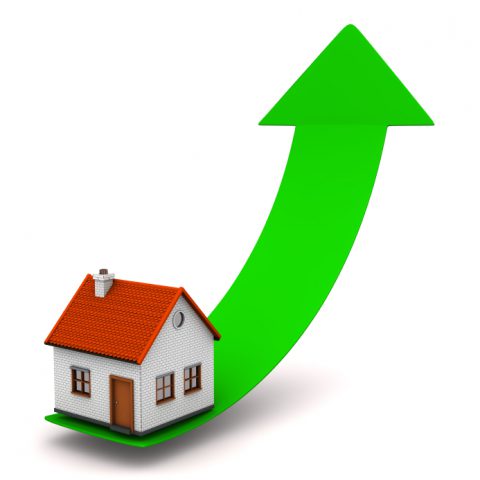Annual house price growth picked up to 2.6% in the three months to August, from 2.1% in July, according to the latest House Price Index from Halifax.
On a quarterly basis, house prices in the last three months (June to August) were 0.1% higher than in the previous three months (March to May). Price growth on this measure has edged up for the first time since March.
Month-on-month, house price growth reached 1.1% in August, from 0.7% in July, taking the average property value in the UK to £222,293.
UK home sales continue to exceed 100,000; the latest data, for July, shows that property transactions reached 104,760 – the highest monthly level since March 2016. Sales have now exceeded 100,000 for the seventh consecutive month and, in the three months to July, activity was 10% higher than in the same period last year.


Annual House Price Growth Picks up to 2.6%, Reports Halifax
The volume of mortgage approvals for home purchases grew sharply between June and July, by 5.2%, to hit 68,700 – the same level as in January. This increase has almost reversed all of the declines recorded so far this year, though sales have remained in a narrow range between 65,100 and 68,700 per month over the last ten months.
Halifax also reports that the supply of homes for sale continues to stay low. This shortage has been a constraint on market activity, with new instructions dropping for the 17th consecutive month in July. Average stock levels on estate agents’ books are close to an all-time low.
The Managing Director of Halifax Community Bank, Russell Galley, says: “The annual rate of growth increased from 2.1% in July to 2.6% in August, with the average house price now £222,293, which is just above the previous high of December 2016 (£222,190).
“Recent figures for mortgage approvals suggest some buoyancy may be returning, possibly on the back of strong recent employment growth, with the unemployment rate falling to a 42-year low. However, wage growth is still lagging increases in consumer prices, which is likely to add pressure on household finances and increase affordability challenges for some buyers.”
He adds: “House prices should continue to be supported by low mortgage rates and a continuing shortage of properties for sale over the coming months.”
Russell Quirk, the Founder and CEO of online estate agent eMoov.co.uk, also comments: “Rather than returning from the holiday period sunburnt and bleary-eyed, the UK housing market has defied the usual slower summer trends to show strong price growth on a monthly and annual basis.
“Although the same can’t be said for wage growth, mortgage rates still remain low and, this, coupled with the ongoing shortage of stock and high volume of sales, should see UK house prices continue this upward trajectory heading towards Christmas.
“This initial increase puts the market in good stead, despite a rough ride over the last year, and we should now see some degree of normality return as we see out 2017.”
The Head of Sales at independent estate agent James Pendleton, Ewen Bunting, offers his thoughts: “The housing market is level pegging with inflation once again, as supply remains a major driver. It was only in July that inflation gained the upper hand. Homeowners began to see the cost of everything they buy going up quicker than the price of their house, but this battle isn’t over yet.
“Nationally, we’re now facing a year-and-a-half straight of falling instructions. There just hasn’t been enough choice out there and, among those who simply need to buy and have the means, there’s no option but to meet seller demands.”
He continues: “In London though, we’re seeing positive signs of supply rising, bucking the national trend in a market that often acts as a bellwether for the country as a whole.
“There’s no doubt low mortgage rates will be tempting many to throw caution to the wind and seal the deal on their next step up the ladder, and sellers could be responding to this.
“If prices are to cool later this year, amid a squeeze on spending and a possible rise in interest rates, it would be better this is driven by increased supply than a collapse in buyer confidence at prices that have risen relatively sharply in many areas, including London and the South East in recent years.”
And Alastair McKee, the Managing Director of independent mortgage broker One 77 Mortgages, also responds to the data: “First time buyers are proving to be the ballast of the property market. The Help to Buy initiative, coupled with the sheer competitiveness of the mortgage rates available and softer house prices, have opened a window of opportunity for many first time buyers.
“First time buyers have made up for the lack of demand from landlords, and then some. Many people also want to get onto the property market, and lock into low fixed mortgages rates, before interest rates potentially start to rise. There’s a sense that the clock is ticking on rates, and that is certainly a factor in the steady number of transactions.
“The toxic combination of high inflation and low wage growth is a key threat to the property market, and could see confidence unravel if it gets out of hand. But, if the jobs market remains strong and inflation doesn’t rise far beyond its current level, there is no reason to think the market couldn’t continue along its current path for some time yet.”
